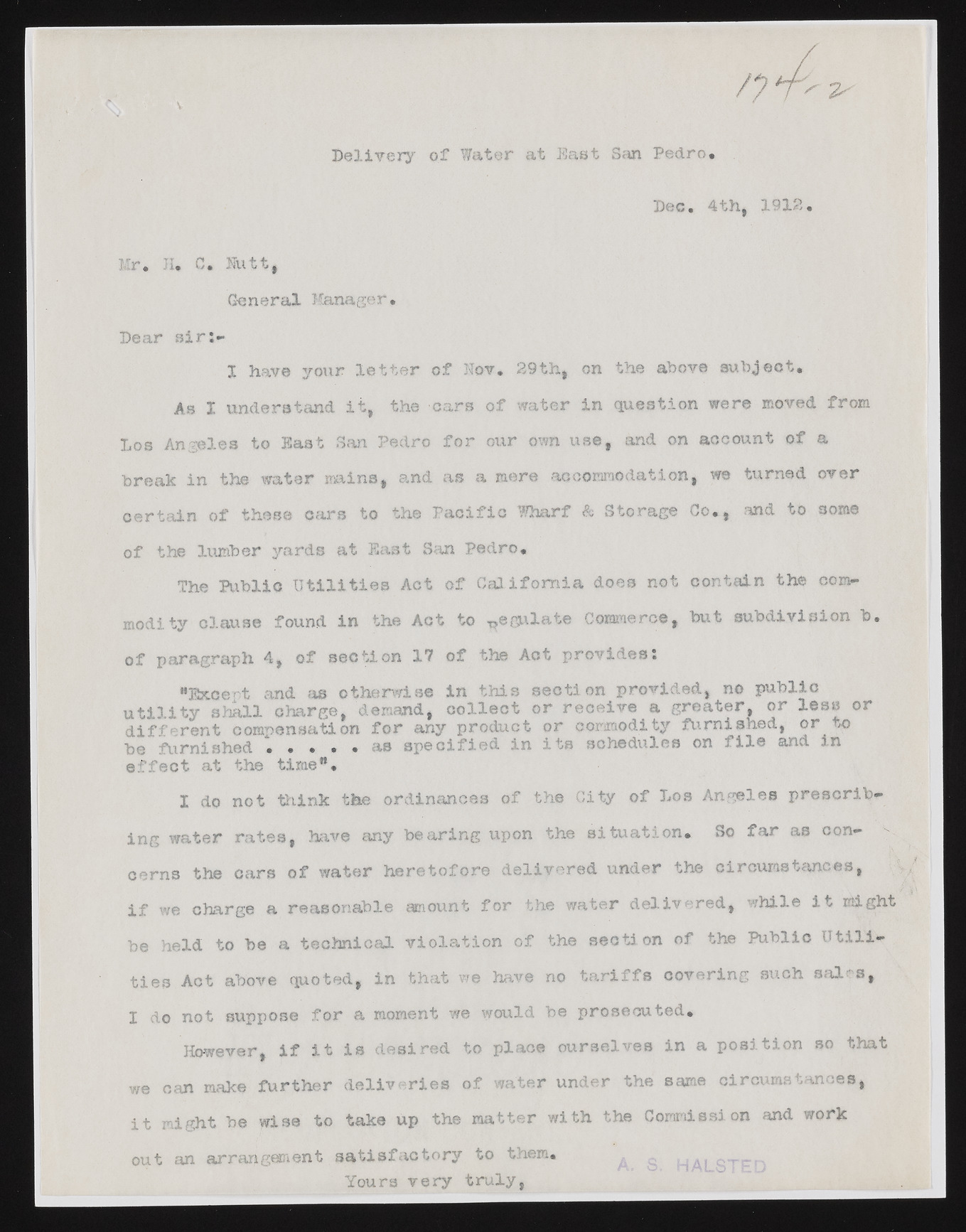Copyright & Fair-use Agreement
UNLV Special Collections provides copies of materials to facilitate private study, scholarship, or research. Material not in the public domain may be used according to fair use of copyrighted materials as defined by copyright law. Please cite us.
Please note that UNLV may not own the copyright to these materials and cannot provide permission to publish or distribute materials when UNLV is not the copyright holder. The user is solely responsible for determining the copyright status of materials and obtaining permission to use material from the copyright holder and for determining whether any permissions relating to any other rights are necessary for the intended use, and for obtaining all required permissions beyond that allowed by fair use.
Read more about our reproduction and use policy.
I agree.Information
Digital ID
Permalink
Details
More Info
Rights
Digital Provenance
Publisher
Transcription
Delivery of Water at East San Pedro. Dec. 4th, 1912. Mr. H, C. Nutt, General Manager. Dear s i r :- X have your le t t e r of Nov. 29th, on the above subject. As I understand it , the cars of water in question were moved from Los Angeles to East San Pedro fo r our own use, and on account of a break in the water m in s, and as a mere accommodation, we turned over certain of these cars to the P acific Wharf & Storage Co., and to some of the lumber yards at East San Pedro. The Public U t ilit ie s Act of C aliforn ia does not contain the commodity clause found in the Act to ^egulate Commerce, but subdivision b. of paragraph 4, of section 17 of the Act provides: "Except and as otherwise in this secti on provided, no public u t ilit y shall charge, demand, collect or receive a greater, or less or d ifferen t compensation fo r any product or commodity furnished, or to be furnished . . . . . as specified in it s schedules on f i l e and in e ffect at the time". I do not think the ordinances of the City of Los Angeles prescribing water rates, have any bearing upon the situation. So fa r as concerns the cars of water heretofore delivered under the circumstances, i f we charge a reasonable amount for the water delivered, while i t might be held to be a technical violation of the section of the Public U t i li ties Act above quoted, in that we have no t a r iffs covering such sa l"s, I do not suppose fo r a moment we would be prosecuted. However, i f i t is desired to place ourselves in a position so that we can make further deliveries of water under the same circumstances, i t might be wise to take up the matter with the Commission and work out an arrangement satisfactory to them. Yours very truly,

